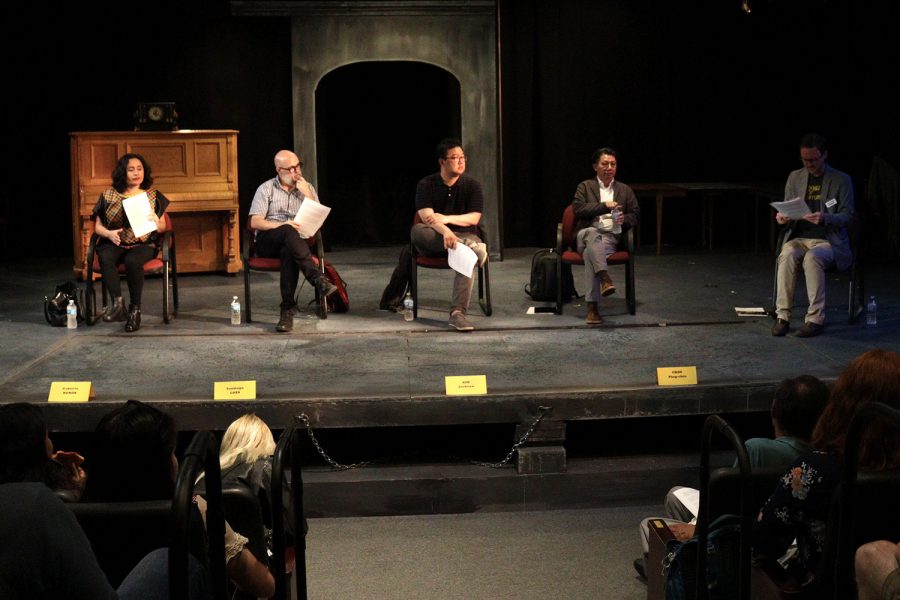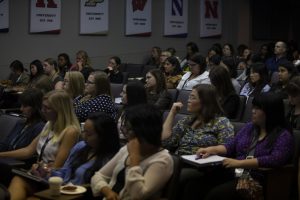International films screening at FilmScene through partnership with International Writing Program
The International Writing Program is showing a different international film at FilmScene every week. For the first time in the 50 plus years since IWP began, they will partner with FilmScene.
Writers discuss their creative processes when writing and directing during a panel discussion for the International Writing Program on Friday, September 20, 2019 at Riverside Theatre. Writers will be debuting their films with public screenings every Sunday night at FilmSeries. (Hannah Kinson/The Daily Iowan)
September 22, 2019
FilmScene and the University of Iowa International Writing Program are partnering for the first time to feature a variety of international screenwriters, directors, and novelists in a free weekly film series.
Streaming from Sept. 8 to Nov. 10, the program will exhibit international films at 7 p.m. Sunday nights in FilmScene’s Pedestrian Mall location.
UI Professor Natasa Durovicova, the house editor with the International Writing Program, said the series gives unknown writers and directors a chance to showcase their work for the Iowa City community, who may have otherwise never discovered those films.
“Some of the films that we are showing can be eccentric, they go off the limb and show something very different from commercial movies, so it’s a really unique experience,” Durovicova said.
Because FilmScene opened a new location in the Chauncey Building, the nonprofit has more room to offer a variety of different films and form partnerships with organizations such as the International Writing Program, Durovicova said.
The style of the international films works well with FilmScene’s ambition, Durovicova said. She said that not only does the program benefit the writers, but the different films that are streaming also add to the cinematic choices that Iowa City has to offer.
Chan Ping-chiu, a writer and director from Hong Kong, is working with the International Writing Program to showcase his documentary film Best Wishes.
“I really want to share this experience of Hong Kong with Americans who will otherwise never see Hong Kong,” Ping-chiu said. “My documentary used over 100 people from Hong Kong with different backgrounds, identities, and world views.”
Argentinian writer and director Santiago Loza said his work tends to be more fictional, as many of the writers agreed in their differences.
“Fiction makes life tolerable — that’s what I have understood since childhood,” Loza said. “We need stories to survive, they tell us something important and then we tell them to others.”
Loza said he is not only excited to showcase his film, but also see the films from other writers in the program.
Many of the writers in the International Writing Program support each other in their work and attend each other’s screenings for the chance to learn from one another, Durovicova said.
Intended for all members of the public, the film series is aimed at an audience of more than just cinema and screenwriting students, Durovicova said. The International Writing Program’s goal is to expand the cultural knowledge of its audience and create a longstanding appreciation for noncommercial films, she added.
“I think it’s important for people to attend the International Writing Program’s cinematheque to experience diversity and to understand that the world is more than the U.S.,” Durovicova said. “America is such a huge country that it makes it easy to forget about the world around you — that is, unless you make an effort to expand your view, and cinema is an amazing and easy way to do that.”





